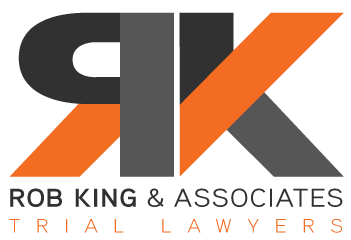Today, insurance can get complicated when dealing with a car accident case.
First, there is what is called “liability insurance.” Liability insurance is insurance that covers the driver who has caused an accident. Compensation, payable from an auto liability policy, is available to those who have been harmed by an the at-fault driver’s negligence. In Indiana, liability coverage is mandatory in the amount of $25,000 for every individual harmed or $50,000 for every group of individuals harmed. Medical payments coverage is a different type of insurance.
Medical payments coverage is an optional coverage some people buy when purchasing their own liability policies. With medical payments coverage, a certain amount of coverage is available to pay for medical related expenses regardless of whether you are at fault or not in an accident. So, if you are struck by an at-fault driver, you can in theory pull from at least two insurance policies to pay for accident related medical expenses: your own policy and the at fault driver’s.
Then, there is uninsured and underinsured motorist coverage. These types of coverages are sometimes available to pay compensation when the driver who hit you either does not have any insurance coverage or does not have enough. Like medical payments coverage, uninsured and underinsured motorist coverage are optional coverages which are purchased when you buy your liability policy. Very importantly, if you are making an underinsured motorist claim, there are important legal requirements that must be satisfied. If they are not, your underinsured motorist claim will be jeopardized.
Your own private health insurance may have some role to play with the insurance coverages above. Oftentimes in catastrophic cases, health Insurance is used in the short term to pay for medical expenses which would otherwise be payable through liability coverage. Why is this when the other driver is responsible for your health insurance charges? Because liability coverage will not pay out in piecemeal fashion. In other words, liability coverage will not pay medical expenses as you go or as they are incurred. Therefore, private health insurance and medical payments coverage can be used in the short term to pay medical expenses which will eventually be part of the liability coverage case.
When a liability coverage settlement is obtained, sometimes your healthcare insurance company or medical payments insurance company will have a lien on your liability settlement. Lawyers experienced in personal injury law have various tools at their disposal to reduce the amount of road healthcare insurance companies and medical payments insurance companies.
Does all of the sound confusing to you? If it does, let my firm handle these matters for you. We find that oftentimes we can confer a huge value on the case because of our ability to understand the various insurance coverages which come in to play in a car accident case and how they interrelate to each other.
Call Rob King and Associates, Trial Lawyers today at (317) 916-0000 for help understanding the insurance coverage issues which are affecting your case!
